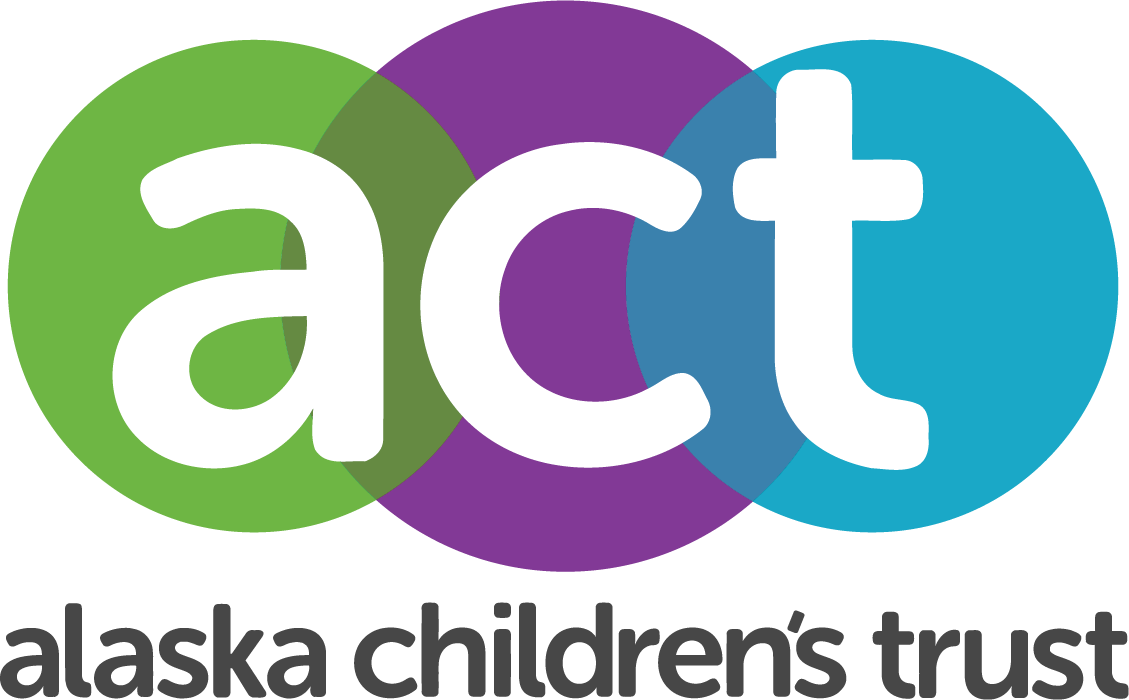Child-Parent Psychotherapy: What it is and why it's essential for Alaska's children
By Chris Gunderson, LPC-S, NCC, President/CEO, Denali Family Services
In response to a growing need for early childhood mental health services in Alaska, a multi-agency partnership, including the Alaska Children’s Trust and Denali Family Services, is working to disseminate Child-Parent Psychotherapy (CPP) training across Alaska with the goal of training clinicians from around the state in this nationally recognized, evidence-based practice. In this post, I will discuss the need for this training and the reasons why CPP is an essential addition to Alaska’s continuum of care.
In calendar year 2019, the Alaska Office of Children’s services received more than 23,000 protective services reports, nearly half of which were screened-in for further investigation. Federal statistics indicate that younger children, ages 0 to 3, experience rates of maltreatment two to three times that of adolescents. In Alaska, nearly half of all child abuse victims experience their first incident of abuse before the age of 5. Taken together, these numbers tell us that very young children in Alaska are at elevated risk for abuse and neglect. What these numbers do not express is the profound, and disproportionate, impact that maltreatment early in life will have on a child’s development.
All child maltreatment is tragic; however, maltreatment in early childhood has a particularly profound effect on the course of a child’s development. The earliest years in a child’s life are characterized by sensitive and critical periods of development.
· Sensitive periods are times in which essential abilities—including emotional regulation and language usage—are rapidly developing and the child is especially predisposed to learning specific use-dependent skills.
· Critical periods are times in which aspects of physical and cognitive development are especially susceptible to damage.
In other words, young children are optimized to learn and develop from positive, nurturing experiences at specific times in their early life; however, this flexibility also makes them extremely vulnerable to negative, harmful experiences. If young children are not exposed to the interactions necessary for healthy development, or if this development is interrupted by traumatic experiences, they will have an increasingly difficult time learning and mastering these skills as they age.
Another unique aspect of child maltreatment in early childhood is that it typically occurs in the context of the caregiving relationship, which is often referred to as relational trauma. Relational trauma in early childhood is unique from other types of trauma, in that the child loses her sense of safety in the most critical relationships of her early life, those with her primary caregivers. If the child learns that the world around her is not safe, and that those closest to her cannot keep her safe, she is left with the belief that there is no safe place and there are no safe people. This can have a significant impact on a child’s ability to learn, engage with the world, form relationships, and build a healthy self-identity.
Ultimately, young children need safe and nurturing adults to protect them during the critical and sensitive periods of their young lives, helping them achieve the cognitive, social, emotional, and physical development necessary for future growth and maturation. Sometimes caring adults lack the skills, knowledge, or emotional resources to keep their children safe or to help them recover from traumatic events. The purpose of Child-Parent Psychotherapy (CPP) is to help caregivers overcome these obstacles so they can form or repair the caregiving relationship their child needs to thrive.
CPP is an intervention model designed primarily for children aged 0-5 who have experienced at least one traumatic event and are experiencing attachment or behavioral problems as a result. The treatment is based in attachment theory but also integrates a range of clinical and developmental theories appropriate to the unique needs of young children.
CPP is among a growing number of approaches that include the child and parent or primary caregiver in the therapeutic sessions. The primary goal of CPP is to support and strengthen the relationship between a child and her caregiver and to use that relationship to rebuild a child’s sense of safety, which will allow the child to move back toward healthy growth and development.
In September, the first cohort of CPP clinical trainees in Alaska completed an 18-month program of training, supervision, and case consultation that will lead to national recognition as a CPP clinician. Having completed the didactic portion of the training, trainees will receive another three months of supportive consultation to help them implement CPP in their practice. The cohort includes 26 clinicians from 11 communities across Alaska, stretching from Sitka to Kotzebue. The clinicians work in a variety of settings, including community mental health, private practice, primary care, tribal health, and emergency shelter services.
Our hope is that these clinicians will build the foundation for a robust early childhood workforce that can intervene earlier in the lives of young Alaskans exposed to abuse and neglect. Their efforts will lead to better early intervention across our state, which will save time, money, and lives further down the road.
Alaska Children’s Trust was pleased to support the CPP training project with a 2019 – 2020 community-based child abuse and neglect prevention grant. Learn more about our grants, grant recipients and application process on our website.
Chris Gunderson, LPC-S, NCC, is President/CEO, Denali Family Services

